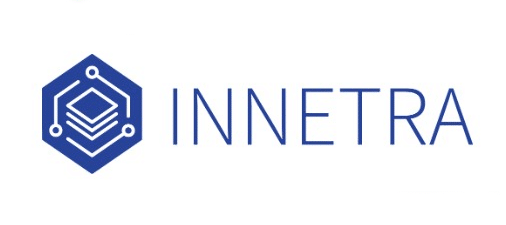 As pirate IPTV services have continued to grow in recent years, TV broadcasters and distributors have intensified their efforts to combat piracy.
As pirate IPTV services have continued to grow in recent years, TV broadcasters and distributors have intensified their efforts to combat piracy.
Pay TV provider DISH Network, in tandem with the International Broadcaster Coalition Against Piracy (IBCAP), has been particularly active on this front, filing a series of lawsuits in the United States.
DISH Sues Innetra
In May, DISH filed a copyright infringement complaint against UK hosting company ‘Innetra PC’ at a California federal court. DISH accused the company of aiding widespread copyright infringement, while largely ignoring takedown requests.
The complaint, based on IBCAP’s evidence, alleged that Innetra provides essential infrastructure for “Pirate Services”. They include Lemo TV and Kemo IPTV, which were sued by DISH earlier this year, as well as Honeybee, Xtremehd, and Caliptostreams.
DISH argued that Innetra cannot rely on safe harbor protection because it allegedly failed to respond to numerous copyright infringement notices. A notice to which it did respond indicated a refusal to comply.
The lawsuit specifically states that Innetra “possessed the means to take simple measures to stop the infringement” but “refused to take such measures, choosing instead to continue profiting.”
While Innetra is a UK company, DISH argued that the U.S. is an appropriate venue for the lawsuit, as the hosting service targeted its services towards the U.S. by, among other things, referencing the DMCA on its website.
The complaint states that Innetra is liable for contributory and vicarious copyright infringement, for which the plaintiff seeks damages that could reach $25 million. The same applies to Innnetra’s general partner, Elna Paulette Belle, who is personally listed as a defendant in the case.
Innetra Wants Case Dismissed
This week, Innetra responded to the complaint with a motion to dismiss. The company does not respond to the copyright infringement allegations in detail. Instead, it argues that the court lacks jurisdiction, as the UK company has minimal to no contacts with the United States or California.
The defendants argue that the court has neither general nor specific personal jurisdiction in this case. General jurisdiction requires “substantial” or “continuous and systematic” contacts with the U.S., but Innetra notes that its principal place of business is in the UK, while Belle is a citizen and resident of the Seychelles, with no U.S. contacts.

Innetra further notes that specific jurisdiction doesn’t apply either, as DISH cannot prove they “purposefully directed” or “purposefully availed” themselves of the United States, emphasizing that a plaintiff’s contacts with the defendant cannot be the sole basis for jurisdiction.
The company states that it doesn’t have any U.S. servers and just one U.S. user since its inception, whose account was active for just two months in early 2025.
The DMCA and other U.S. Links
The hosting company notes that the company’s main market is not the United States, but North Africa, Europe and Eastern Europe. It suggests that it’s services aren’t very appealing for American users due to the high latency, as its servers are all located in the Netherlands.
DISH argues in its complaint that Innetra’s FAQ specifically mentions the DMCA, which is a U.S. copyright law, but the hosting company doesn’t believe that its promise to “customers from illegitimate DMCA claims” warrants jurisdiction either.
“Addressing DMCA takedown notices does not confer personal jurisdiction and does not show that Innetra purposefully availed itself to United States Service Users. Moreover, there is nothing nefarious about stating that Innetra protects its customers from illegitimate DMCA Claims and such a statement does not imply that Innetra disregards the DMCA,” the hosting company writes in its motion to dismiss.
Innetra further argues that other website features, such as the default pricing in U.S. dollars, the availability of a U.S. phone number, and ties with American payment providers such as Visa, Mastercard, and PayPal, do not necessarily show that it purposefully targeted its services to the United States.
A UK Lawsuit?
The hosting provider doesn’t dismiss the notion of a lawsuit entirely but instead argues that the United Kingdom is a more appropriate venue. It stresses that both the U.S. and UK are signatories to the Berne Convention, which allows for reciprocal copyright protections.
“Dish may pursue its dispute in the United Kingdom where Innetra is located. Dish, however, may not force foreign defendants that lack minimum contacts with the United States, let alone California, to defend themselves in the United States,” the motion to dismiss reads.
Innetra’s general partner and director, Elna Paulette Belle, is a citizen and resident of the Seychelles and presumably favors a UK lawsuit as well.
In a declaration, Elna Paulette Belle notes that her name has changed to Elna Paulette Valentin. This is not the first name change, as she appears to have used the name Elna Paulette Lafortune in the past. These three names are publicly connected to dozens of UK companies.
The motion to dismiss is scheduled for a hearing on September 17, 2025. After that, the California federal court will decide whether the case can continue in the United States or not.
—
A copy of Innetra’s motion to dismiss, filed at the U.S. District Court for the Northern District of California, is available here (pdf)
From: TF, for the latest news on copyright battles, piracy and more.
Powered by WPeMatico
